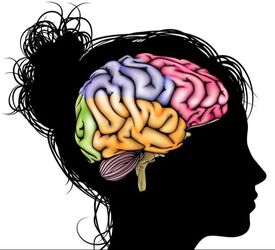 Did you know that whatever neurochemicals are activated just before you engage in an activity or serious conversation, can have a dramatic impact on the outcome? For instance if you just experienced a stressful situation, it is likely cortisol was released, your blood pressure is elevated. It takes from twenty minutes to two hours (every person is different) for your cortisol level to return to its normal state. This can affect your disposition and how you would respond to other situations. Imagine what it's like when your brain releases, each of the different neurochemicals and how it affects your mood. How do neurochemicals impact our mood? I find the brain fascinating, and the health of our brains deserves so much more attention than it gets, but that's another story. I've been reading the book Habits of a Happy Brain by Loretta Graziano Breuning, PHD. In it she describes how the chemicals of our brain work together to promote our survival. She states, "our brain doesn't release a happy chemical until it sees a way to meet a survival need, like food, safety, and social support.
We need a healthy balance of these neurochemicals for our survival. When we understand and recognize how and when each chemical is released it enables us to better manage our own emotions, even help others.
Have you ever had a conversation that went south really quickly and it caught you by surprise? It is likely they had something happen to upset or frustrate them just before you approached them. The experience elevates their cortisol level, triggering the brain to kick into survival mode, closing off the pathways to higher level thinking (cortex). You are then responding from the limbic system which is your emotional core, so the reaction will likely be emotional, it is when people snap, lose their cool, say things they don't mean. So what can you do with all this information? Knowing that the release of certain neurochemicals brings about different moods and energy it can guide our decision making. It's a game changer to be able to recognize our state of mind and that of others. We can use this information to determine when to have important discussions. We can pause and choose the best time and way to communicate. Our capacity to be aware of and control our emotions, and to handle interpersonal relationships judiciously and empathetically, is when we know our emotional intelligence is emerging.
11 Comments
|
Author
Hi I'm Karen, a certified life coach. I help busy moms develop effective strategies for calming the chaos so they can enjoy their kids & career. Archives
February 2018
Categories |


 RSS Feed
RSS Feed
